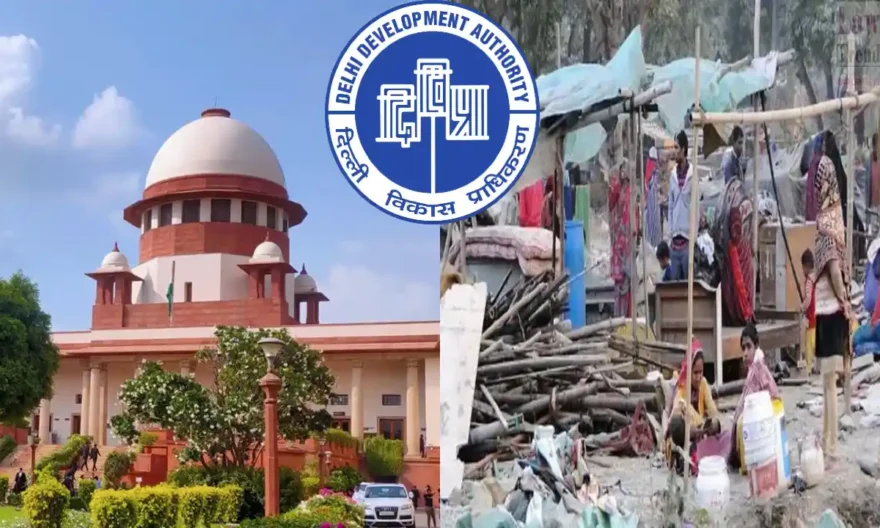
The Supreme Court of India has recently directed the Delhi Development Authority (DDA) to take action to address the suffering of jhuggi dwellers in Delhi’s Sarojini Nagar.
A bench comprised of Justice KM Joseph and Justice BV Nagarathna was hearing a plea filed by Sarojini Nagar jhuggi dwellers against demolition or eviction orders without rehabilitation or relocation.
The SLP was filed against the order of the division bench of the Delhi High Court’s refusal to intervene in the single Judge’s ruling declining to give rehabilitation or relocation of slum dwellers in Sarojini Nagar, New Delhi.
The bench asked the Additional Solicitor General to “use his good offices” to resolve the matter. “It’s a humane problem. We have to see it in that way,” the bench remarked.
According to the High Court’s decision, in order to get rehabilitation under the Delhi Slum and JJ Rehabilitation and Relocation Policy, 2015, the respective Jhuggi Jhopri Basti must be registered by the nodal agency, the Delhi Urban Shelter Improvement Board.
The Supreme Court had instructed the Central Government to stop using coercive measures to evict the jhuggi residents in question around a year ago.
Senior counsel Vikas Singh, who appeared for the petitioners, said that even if the Jhuggi residents had not been notified, they had been occupying the land for a long time. Reading over the key portions of the Delhi High High Court ruling in the Ajay Maken case, which covered the right to rehabilitation, Singh emphasized the Court’s observation that Jhuggi residents should not be considered as second-class citizens.
“Unfortunately, there is no slum development with good transportation and hygienic facilities in big cities,” Justice Singh stated, adding that this is an issue in metropolitan areas.
He went on to say that the government should be alert and not allow invasion. On the other hand, if it continues to give slum dwellers with government identity, they are eligible for rehabilitation.
“That’s the State’s duty. When someone is trying to do that, they should be immediately removed. If you issue them Aadhaar cards and ration cards, all government identification; then you should relocate them to a place that’s appropriate for them,” he added.
At this time, Justice Nagarathna raised an important concern: Are the slum people eager to be relocated? The judge also provided light on the conceivable grounds for urban migration.
“We have heard of many Awas Yojanas. In Karnataka, we have this Ashraya Yojana. They have to be relocated. It’s a continuous process. Migration to the cities is because there’s no economic activity in villages. In fact in villages in Karnataka, there are only senior citizens and children. All other able-bodied persons are out in the cities,” the bench suggested.
ASG Natraj then started making his submissions. He stated that it would be impossible to rehabilitate every jhuggi dweller. “Land is extremely scarce in Delhi.”
He went on to say that the scheme in question was never challenged in the Delhi High Court. “It’s a structured beneficiary scheme.” Given Delhi’s demographics, it’s a service,” the ASG stated.
He gave the Bench a map in addition to explaining the history of the land.
“We thought Sarojini Nagar was small, but it’s 235 acres and home to over 136 families,” the Bench exclaimed.
After reviewing the law, the Bench determined that having a jhuggi outside of a ‘Jhuggi Jhopri Basthi’ is not permissible.
“It’s not a Basthi and therefore, not a jhuggi”, the Bench revealed after discussing with each other.
What happens to jhuggis who do not live in Basthis, Justice Nagarathna wondered.
“They are not eligible for rehabilitation under the Act or the scheme.” “Only temporary shelter,” the ASG replied. The bench believed that something had to be done in favor of the Jhuggi residents.
“They were raised there. They are insignificant individuals. “They don’t have a choice,” said the Bench before rising for the day.
The matter is listed for further hearing on April 18, 2023.




